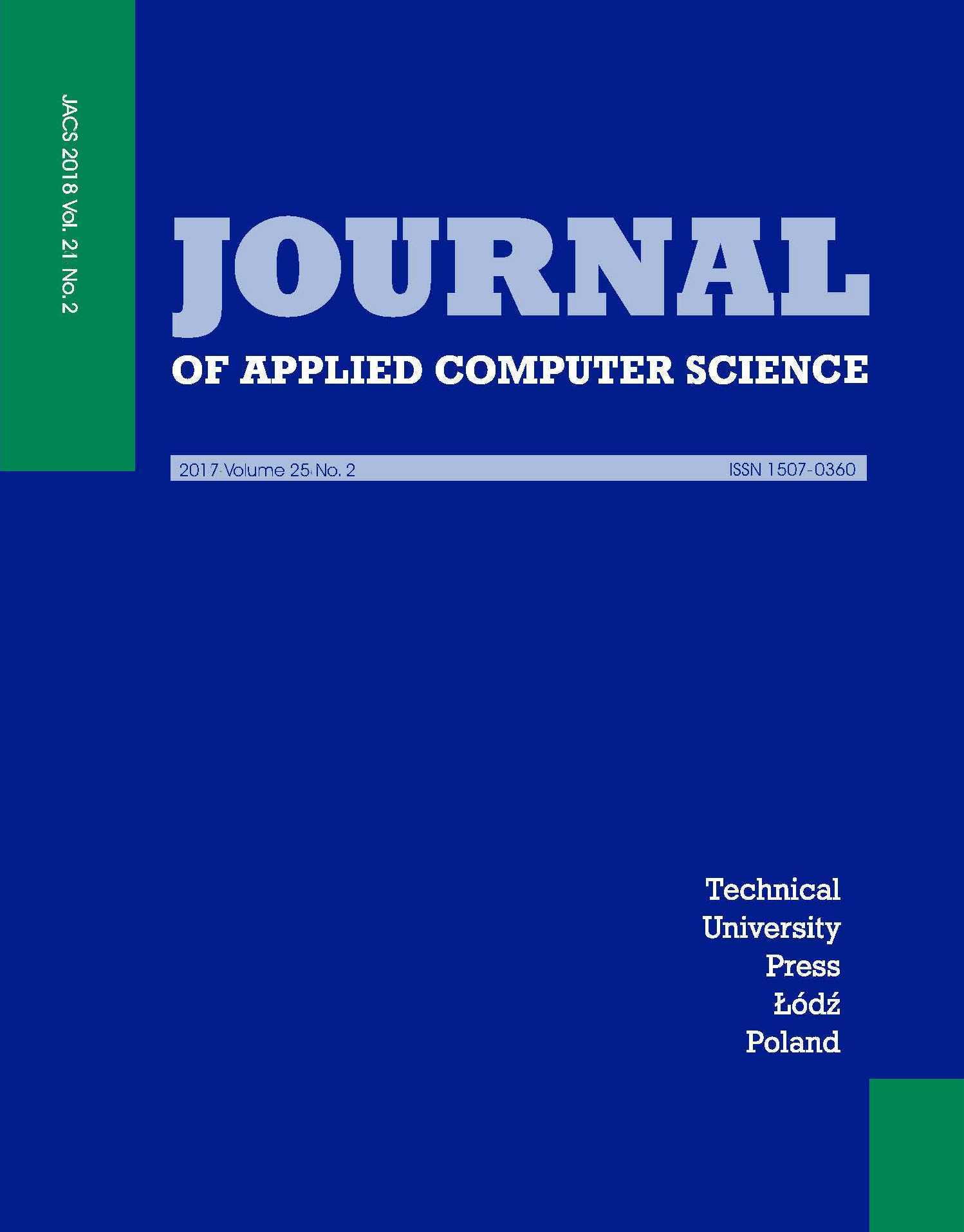Abstract
In this paper outlier detection is used to determine anomaly between tasks to prevent occurrence of resource conflicts in prepared schedule. Determined conflictless schedule bases on controlling access of tasks to groups of shared resources. Proposed approach allows to prepare conflictless schedule of efficient parallel task processing without resource conflicts and is dedicated to environments of task processing with high contention of shared resources. In this paper the outlier detection is used to resolve two classical concurrency problems: readers and writers and dining philosophers. In opposition to other known solutions of concurrency problems, proposed approach can be applied to solve different problems and do not require to use additional mechanisms of task synchronization. The universality of proposed approach allows to prepare conflictless schedule even in environments, where classical concurrency problems will be significantly expanded and complicated.
References
Tanenbaum, A. S. and Bos, H., Modern operating systems, Prentice Hall Press, 2014.
Stallings, W., Operating systems, Internals and Design Principle, Pearson Education, 2015.
Pun, K. and Belford, G. G., Perfornance Study of Two Phase Locking in Single-Site Database Systems, IEEE transactions on software engineering, No. 12, 1987, pp. 1311–1328.
Bernstein, P. A. and Newcomer, E., Principles of transaction processing, Morgan Kaufmann, 2009.
Smolinski, M., Coordination of parallel tasks in access to resource groups by adaptive conflictless scheduling, In: Beyond Databases, Architectures and Structures. Advanced Technologies for Data Mining and Knowledge Discovery, Springer, 2015, pp. 272–282.
Smolinski, M., Conflictless task scheduling concept, In: Information Systems Architecture and Technology: Proceedings of 36th International Conference on Information Systems Architecture and Technology–ISAT 2015–Part I, Springer, 2016, pp. 205–214.
Duraj, A., Conflictless Task Scheduling Using Association Rules, In: Beyond Databases, Architectures and Structures. Advanced Technologies for Data Mining and Knowledge Discovery, Springer, 2015, pp. 283–292.
Duraj, A. and Szczepaniak, P., Information Outliers and Their Detection, Information Studies and the Quest for Transdisciplinarity: Unity through Diversity, Vol. 9, 2017, pp. 413.
Chomatek, L. and Duraj, A., Multiobjective genetic algorithm for outliers detection, In: INnovations in Intelligent SysTems and Applications (INISTA), 2017 IEEE International Conference on, IEEE, 2017, pp. 379–384.
Emets, V. and Rogowski, J., Scattering of acoustical waves by a hard strip and outlier phenomenon, In: INnovations in Intelligent SysTems and Applications (INISTA), 2017 IEEE International Conference on, IEEE, 2017, pp. 376–378.
Smolinski, M., Elimination of task starvation in conflictless scheduling concept, Information Systems in Management, Vol. 5, No. 2, 2016, pp. 237–247.
Bakkum, P. and Skadron, K., Accelerating SQL database operations on a GPU with CUDA, In: Proceedings of the 3rd Workshop on General-Purpose Computation on Graphics Processing Units, ACM, 2010, pp. 94–103.
He, B. and Yu, J. X., High-throughput transaction executions on graphics processors, Proceedings of the VLDB Endowment, Vol. 4, No. 5, 2011, pp. 314–325.
Smolinski, M., The GPU performance in coordination of parallel tasks in access to resource groups without conflicts, Information Systems in Management, Vol. 6, 2017.
Courtois, P.-J., Heymans, F., and Parnas, D. L., Concurrent control with “readers” and “writers”, Communications of the ACM, Vol. 14, No. 10, 1971, pp. 667–668.
Dijkstra, E. W., Hierarchical ordering of sequential processes, In: The origin of concurrent programming, Springer, 1971, pp. 198–227.

